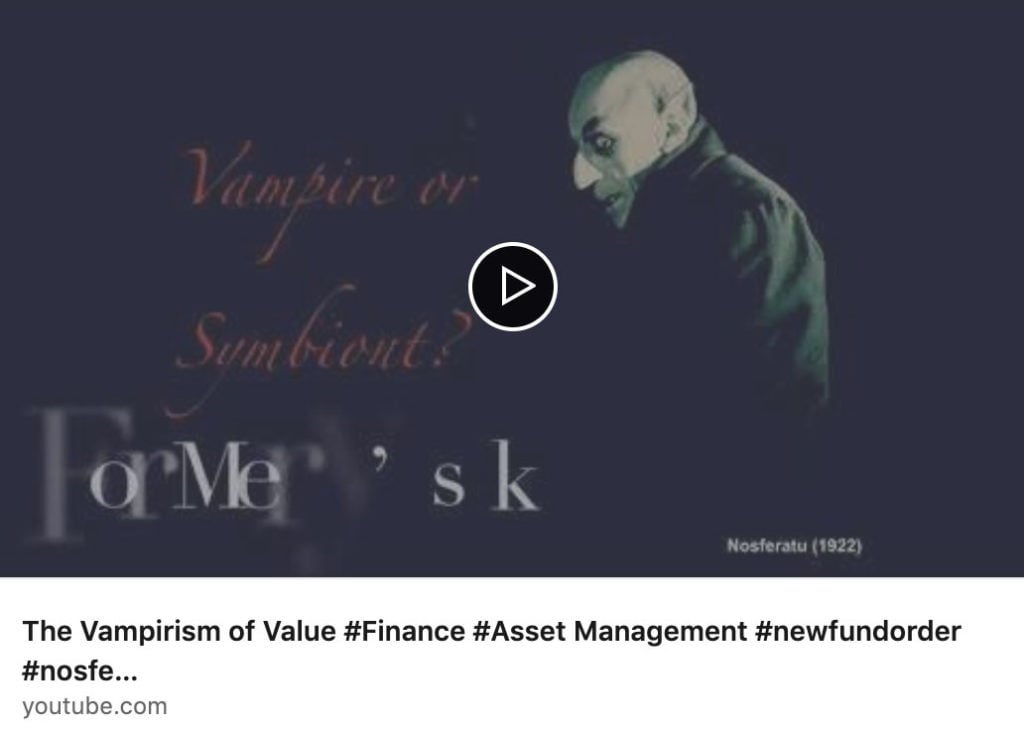This week’s edition of Kurtosys Spotlight features Ryan Glister from Transamerica, trade war investment warnings, Kurtosys hiring news, third wave fintech, Bitcoin ETF developments and the ‘vampirism of value’.
Digital Leader Spotlight: Ryan Glister, Senior Director of Marketing Operations, Print and Digital Delivery at Transamerica
Now in a role at Transamerica, Ryan Glister is a senior marketing professional with a leaning towards digital; this being a skill transferable throughout his career at financial institutions including Western Union where he held posts as a Manager of Finance and a Director of Global Operations. Throughout his tenure here, Ryan was responsible for the training and coordination with external vendors, many being in the tech space. He has previously worked as a Financial Analyst and Program Manager for a scientific solutions company.
With a wide range of skills in various roles and industries, the streamlining of marketing operations and knowledge of marketing technology come naturally to Ryan who continues to lead digital teams with a strong analytical lean.
Ryan is part of our Most Influential Digital Leaders in Asset Management. Check it out!
Featured White Paper: How to model a trade war – just in case…
There’s a fairly large topic that has been touched on briefly here at the Spotlight, but given its incredible importance to the realm of investments, we thought it best to give it an extra focus through an excellent research paper conducted by Qontigo.
That topic is, as you may have guessed from the aforementioned title: trade war. There’s been plenty of talk about the most famous of all (of 2019), that between China and the US, Xi Jinping and Donald Trump, which is highlighted in the introduction of this research. With these two superpowers of the world’s economy (being the top two largest), the report goes on to suggest that this particular trade war is “the single most important driver of financial market performance in the past three years”, hence it’s pivotal effects on the construction of portfolios for investors going forwards.
That’s not to the suggest that this trade conflict between the two largest economic superpowers affects only those two countries alone, as the European markets also come under fire, ‘decoupled from macro-economic factors’, but also European stock markets did post their greatest half-year performance of the past decade in the first half of 2019. It’s such a large-scale indicator of shifting economic matters that the report’s fairly relaxed assertion that it has been written “just on the off-chance that it may come in handy sometime soon” is hilariously refreshing. But nonetheless, there’s some really acute observations in this thorough document by Christoph Schon, CFA, CIPM.
Much of the modelling is done via stress testing – used to assess more extreme yet completely credible effects on a portfolio. The author outlines the differences between various stress tests including sensitivity analysis, running a historical scenario or transitive stress test, before outlining the history behind the trade war between China and the US as well as documenting its escalation segmented by asset class in some handy tables. The second case study then looks into the effects on tariffs on automobile imports from the EU proposed by President Trump in June 2018, breaking down the correlative returns for various industries in the Eurozone as well as abroad.
In conclusion, it seems the author highlights that investors should prepare for a change for the worse, given the history of adverse scenarios. And in order to see how they reached that conclusion, check out the whole report which is available via Savvy Investor.
Kurtosys, the enterprise experience cloud for financial services, is pleased to announce the appointment of Lee Godfrey, who will be joining the company as advisor to the executive team and board.
Serving as a member of the non-executive committee, Lee will bring his wealth of expertise of both the asset management and digital transformation space to assist with the continued growth of Kurtosys as a leading enterprise experience platform across financial services.
Kurtosys CEO and Founder Mash Patel said: “Kurtosys has experienced rapid business growth in the past five years, and given this important part of the company’s journey, we’re delighted to welcome Lee on board as a non-executive advisor. Lee’s combination of experience in both financial services and digital transformation aligns perfectly with what we do here at Kurtosys, and as advisor will bring a wealth of invaluable knowledge from both disciplines to push our vision to the next level. We’ve been delighted to strengthen the capabilities of our executive team, and Lee will be an instrumental part of implementing a well-executed management strategy which, from the top down, will improve the services that we provide to our valued customers.”
Lee Godfrey said: “I am delighted to join up with Mash and his team as an advisor. Kurtosys has developed a platform which solves for the many inefficiencies that plague our industry. I am looking forward to bringing my own experiences and thoughts and help Kurtosys go to the next stage in changing the face of investments”.
You can read more about Lee over on our blog.
Video in Focus: Third wave fintech

As is customary for end-of-year content, it’s time to look forward to future trends, and when it comes to fintech, it seems we can look forward to the portmanteau’s ‘third wave’.
That’s the opinion of Tally’s CEO and cofounder Jason Brown, who took a visit to Fortune’s studios to discuss what is to come to the fore from fintech companies. Tally is a credit card consolidation app allowing you to store and manage your cards and payments in one place.
Jason notes what these three ‘waves’ in the fintech evolution following the 2008 financial crisis are. The first being online and P2P marketplaces, the second being relationships with customers via mobile devices after the introduction of the Apple iPhone in 2007. And now the main term to define this third wave to Jason is automation. Just as we’ve discussed the introduction of machine learning and artificial intelligence prominently within financial services, he here believes that intelligence computers will be cutting out most of the thinking that we do and completely automate services, which is very much true of his own company, Tally. It is, of course, a major part of our services at Kurtosys too, as we look to automate your fund marketing documents.
The interview is certainly a great watch, touching on these futurism topics and getting to grips with knowing more about your customer – give it a watch on the Fortune website! Now, when’s the fourth wave of ska coming?
Fintech News: SEC vs Bitcoin ETF
Yes indeed, the battle rages on between these two acronyms, as we have been covering many a time in this fintech section. Avid followers of this news will note how the proposals for a Bitcoin ETF have been submitted time and time again to the US Securities and Exchange Committee, only to be rejected every single time. It’s as debatable a real-life case as the online lovers vs haters debate for the cryptocurrency, so what is going on? Much of it seems like the debate club episode from Community, for those that catch my drift.
This time around, we look at an article from Coindesk written by David Weisberger – co-founder and CEO of CoinRoutes – who puts forth a valid argument for the ‘love’ side of the Bitcoin ETF conundrum, and also highlight how he feels that it is the SEC’s lack of jurisdiction over cryptocurrencies which is leading to their dislike for the commodity.
David highlights a piece of text from the SEC explaining why it feels bitcoin does not meet the standards that are consistent with other approved ETFs. However, as any fairly weighted argument goes, the author describes in this own view why he feels their analysis has “three main flaws”, which are also backed through his own personal research into other ETFs in products such as precious metals: gold, silver, platinum, oil, where he argues the market for which is far more “opaque” than that of cryptocurrencies such as bitcoin.
He then goes on to conclude how the SEC should focus on the accuracy of market data available to investors (something that we also keenly value here at Kurtosys) and not rely on determining good and bad investments, indeed relying on bias to make their decisions in regard to Bitcoin ETFs.
There will of course be fans and foes of this particular argument to determine the legitimacy of this asset, but it will remain interesting to see whether the ETF market does get rocked by the inclusion of a cryptocurrency-based product once and for all. Given the recent (and repeated) history, it seems unlikely.
Social Spotlight: Cultural Finance
We’ve been discussing one of the coolest events in the financial space in the past few weeks: the lang cat’s nifty DEADx conference. Last week we checked out some of the highlights over on their Twitter hashtag, but this week sees some more in-depth info courtesy of the company’s founder Mark Polson on LinkedIn.

Contained within the post is a presentation from JB Beckett, who delivered a talk at the conference all about the Assessment of Value in asset management, which was the main topic of focus for the entire event. However, this is (fittingly) Halloween-themed, talking about vampirism and featuring a left-field assessment of the landscape with references to Nosferatu, Frankenstein’s monster, and other spooky fiends as part of his New Fund Order series. As Mark states himself: well worth a watch.
If you’d like to have news, people, a new website or articles featured here, please get in touch via Twitter or email us at [email protected]




